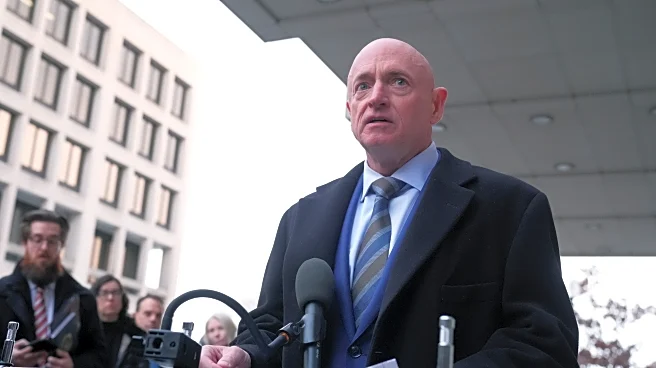What's Happening?
Israel has inaugurated an embassy in Tallinn, Estonia, as part of its strategy to bolster ties with small democracies worldwide. This move is seen as a step to deepen defense relationships and support
Taiwan, positioning Israel at the forefront of a coalition of nations resisting authoritarian influences. The newly appointed Israeli Minister of Foreign Affairs, Gideon Saar, attended the ceremony marking the embassy's opening, highlighting Israel's commitment to fostering international partnerships with like-minded states.
Why It's Important?
The establishment of an Israeli embassy in Estonia signifies a strategic effort to create a network of democratic nations that can collectively counteract authoritarian regimes. This initiative could enhance Israel's diplomatic influence and security cooperation, potentially leading to increased political and economic collaboration among these countries. By supporting Taiwan and strengthening ties with Estonia, Israel is reinforcing its stance against authoritarian aggression, which may have implications for regional stability and international relations.
What's Next?
Israel's diplomatic expansion into Estonia may prompt further initiatives to solidify alliances with other small democracies. This could involve additional defense agreements, economic partnerships, and collaborative efforts in technology and innovation. The move may also elicit responses from authoritarian states, potentially influencing geopolitical dynamics in regions where these democracies are located. Observers will be watching for any shifts in international policy or strategic alliances as a result of Israel's actions.
Beyond the Headlines
The opening of the embassy in Estonia reflects broader geopolitical trends where smaller democracies are increasingly seeking alliances to safeguard their sovereignty and democratic values. This development underscores the importance of international cooperation in the face of rising authoritarianism, highlighting ethical and cultural dimensions of global diplomacy. It may also influence long-term shifts in how nations prioritize their foreign policy objectives, focusing on collective security and shared democratic principles.











